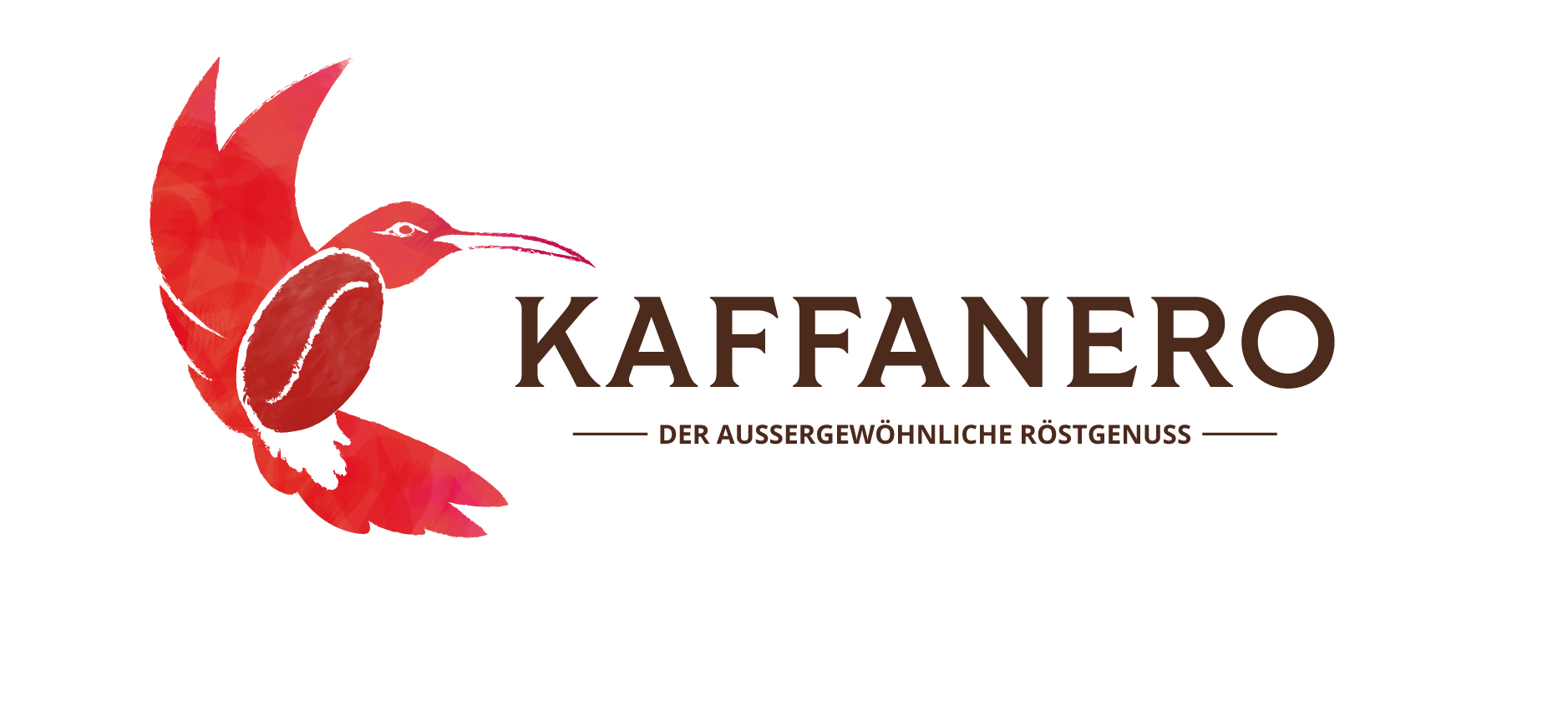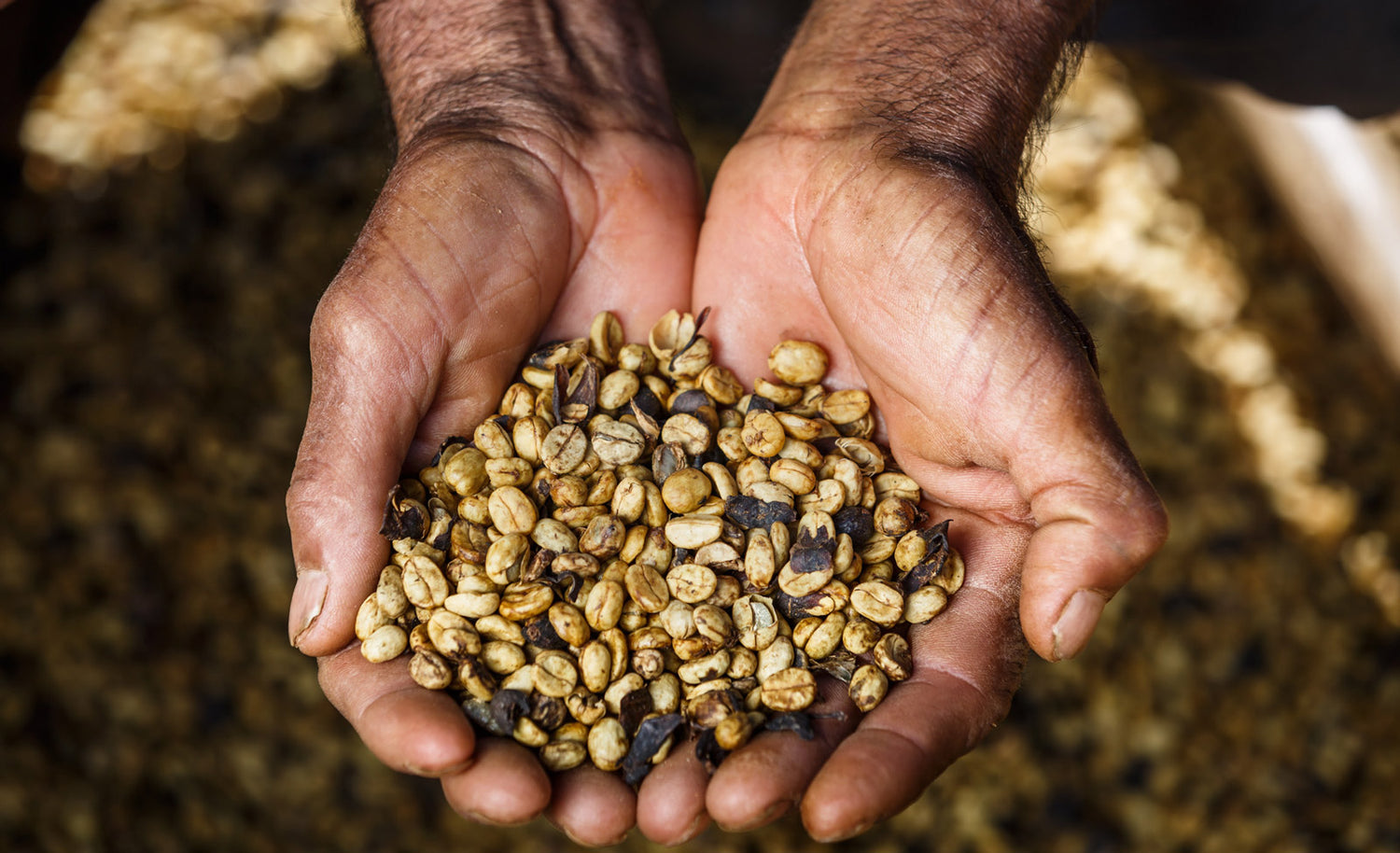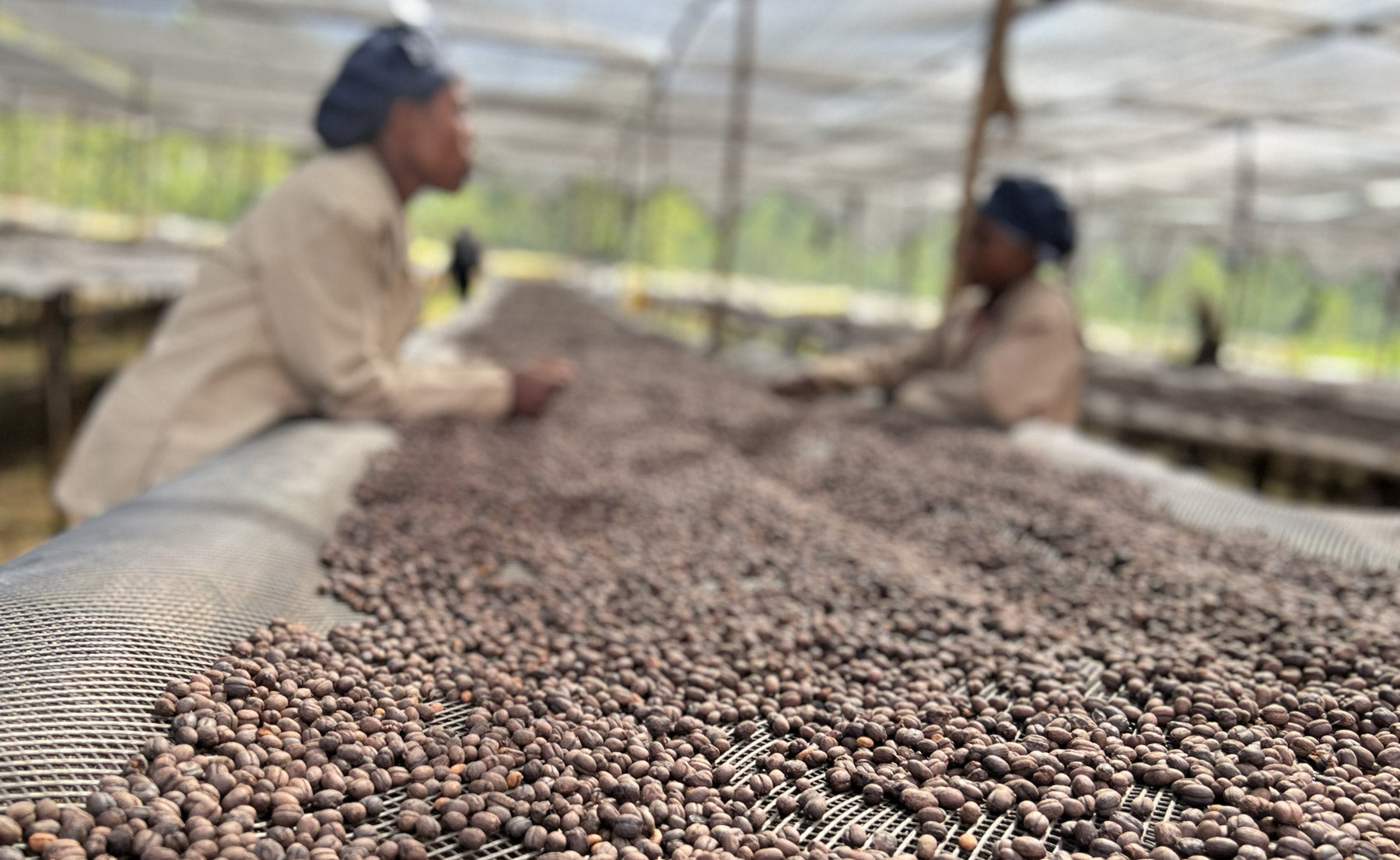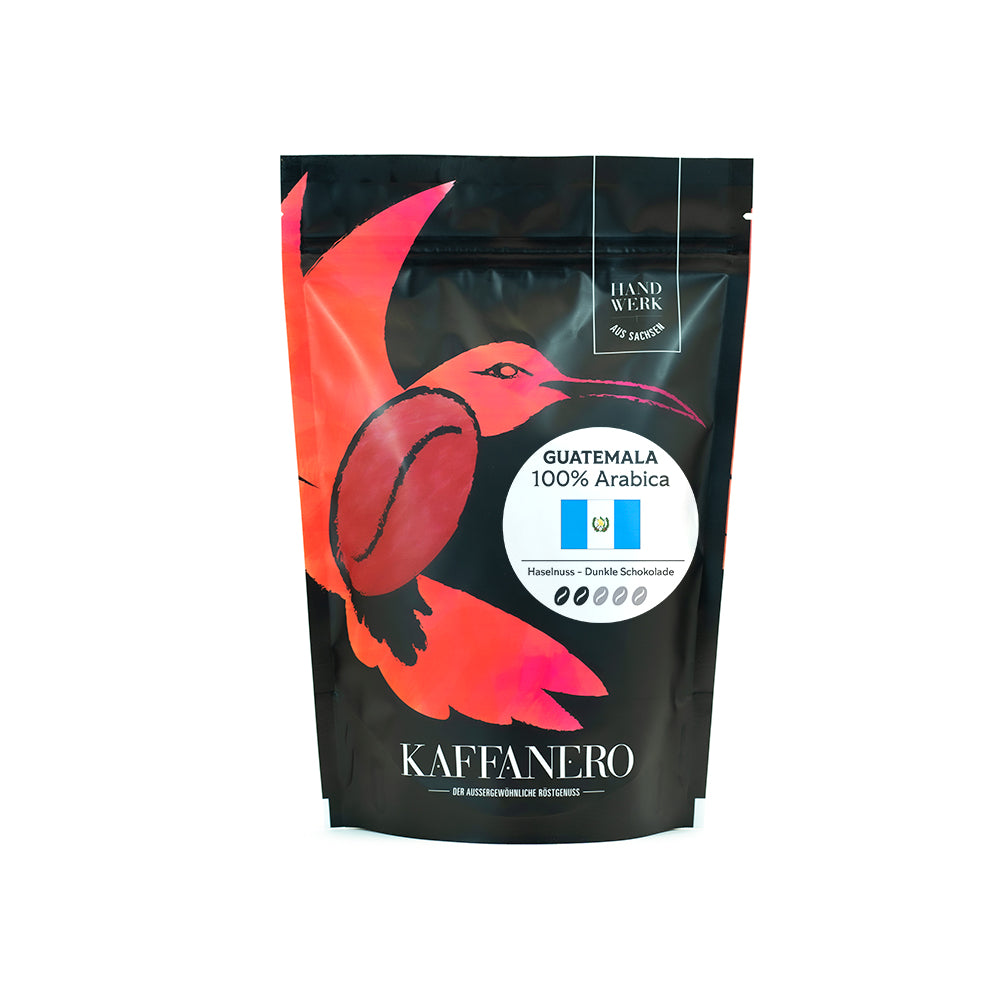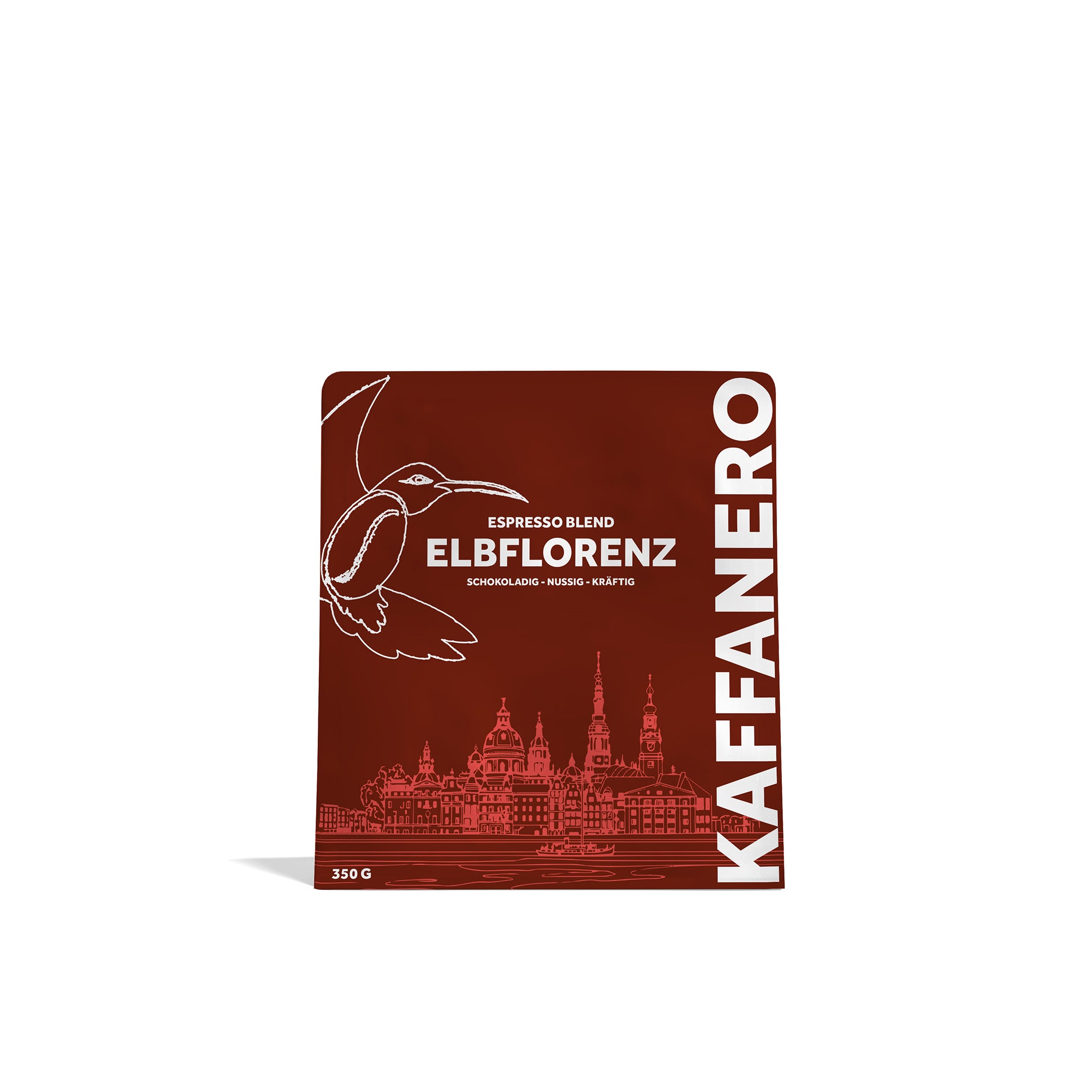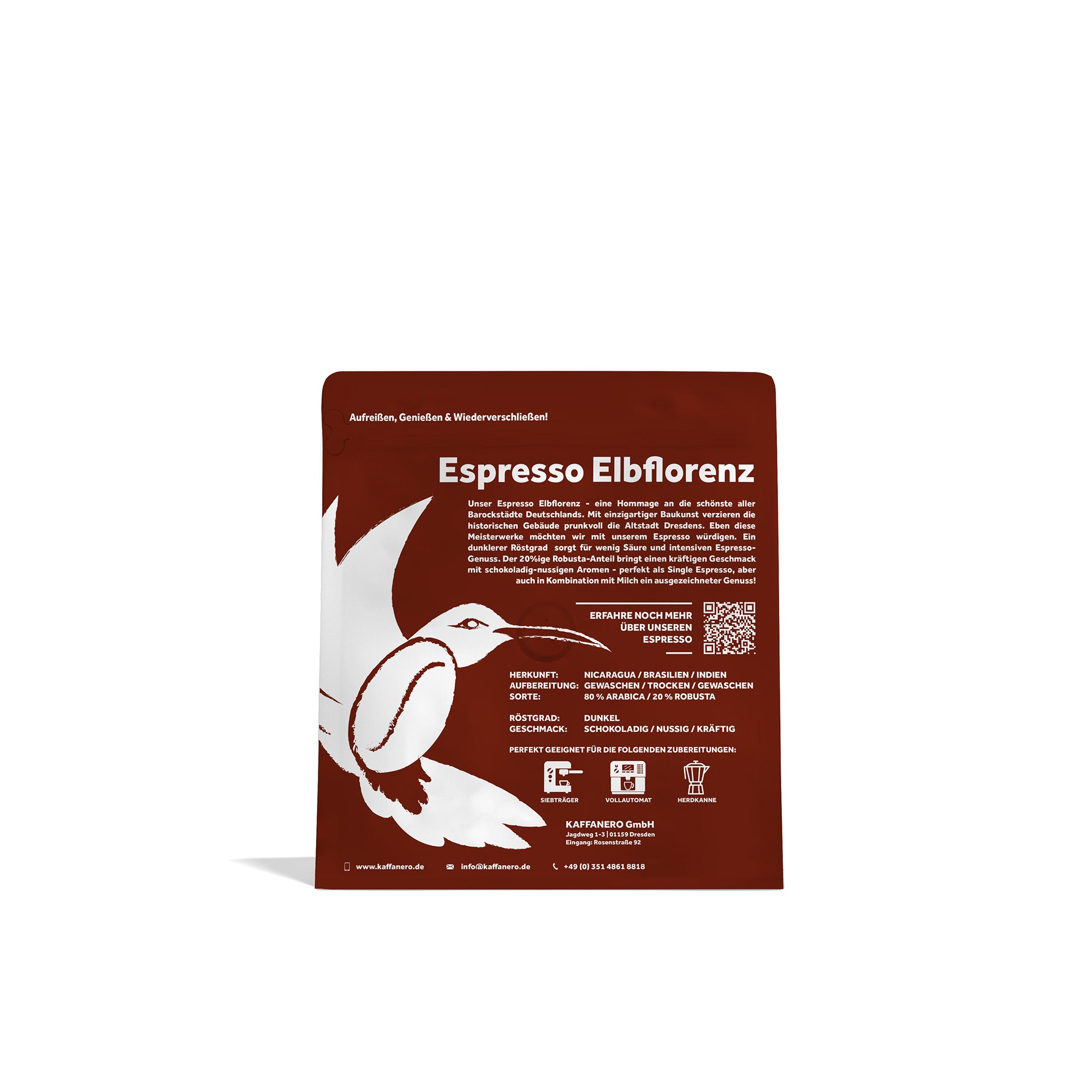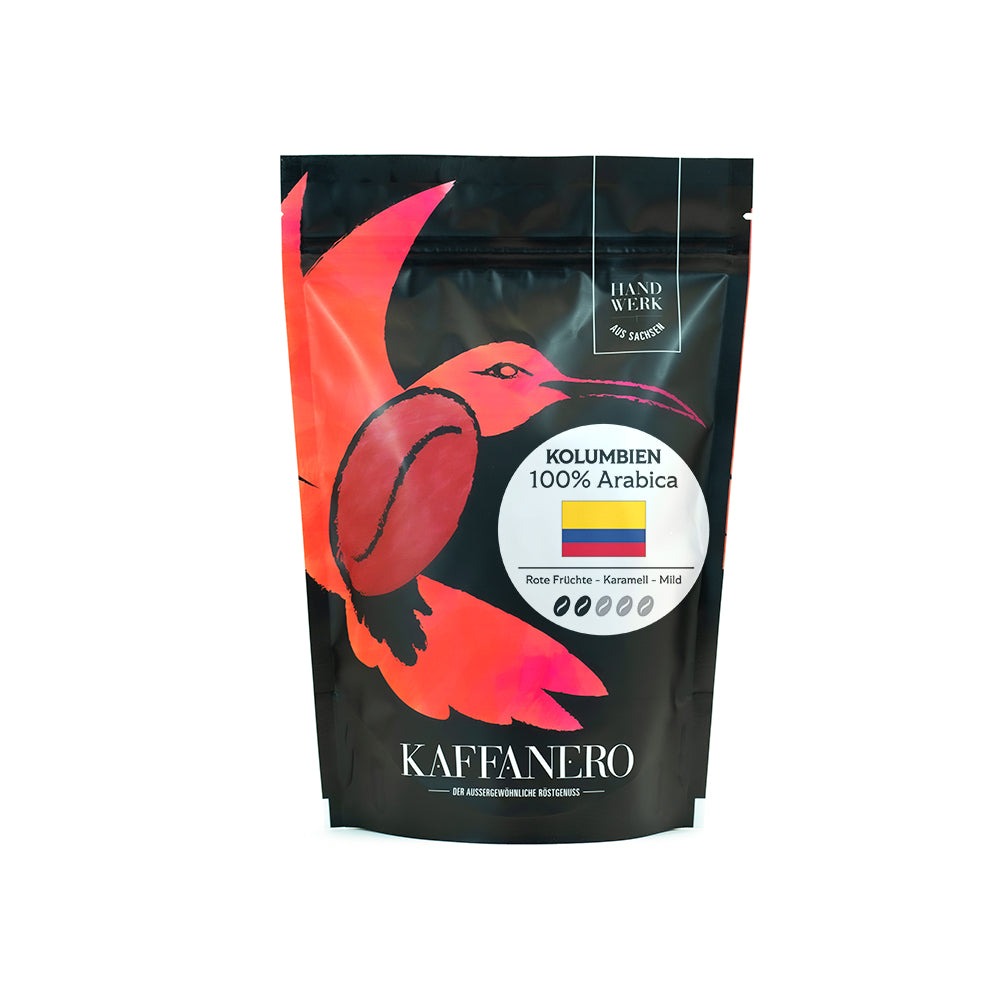During dry processing, the coffee fruits are spread out, turned from time to time and dried until they only contain around 10 - 12% moisture. This can take up to five weeks. After that, the fruit skin and pulp are removed. Robusta coffee and Arabica coffee from Brazil and Ethiopia are produced in this way. During wet processing, the fruits are pre-cleaned with water no later than 24 hours after harvesting. Then the fruit skin and pulp are removed.
The fruit is then transferred to fermentation tanks where a fermentation process takes place, during which the mucilage attached to the fruit liquefies and becomes washable. The beans are then spread out and dried in the sun until the fruit contains about 12% water. This is how Arabica coffee is processed, which does not come from Brazil or Ethiopia. This type of processing produces higher quality coffee.
